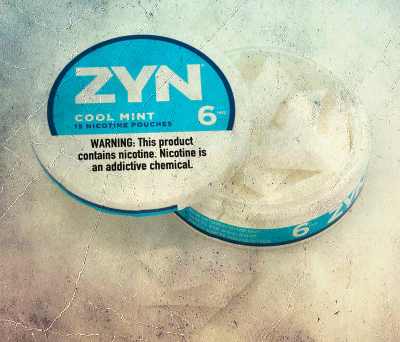
ZYN is a smokeless nicotine pouch product produced by Philip Morris International (PMI). It recently received approval from the U.S. Food and Drug Administration (FDA) to sell it, and it’s more than just a success for one product – it’s likely to make waves across the global nicotine market.
What the FDA approval means and the background
First, it’s important to understand what the FDA’s approval means. The FDA determined that ZYN poses a lower risk of cancer and other serious illnesses than traditional tobacco products, and there was evidence that a significant number of adult smokers have completely switched to ZYN.
This is significant from a public health perspective because with 8 million people dying each year from smoking-related diseases worldwide, alternatives like ZYN can be a key part of a “harm reduction” strategy.
At the same time, however, the FDA emphasized that ZYN cannot be said to be completely safe or ‘FDA approved’, as there is still a risk of nicotine addiction, and there are concerns about its use, especially by young people.
How ZYN’s success will impact the global nicotine market ZYN’s FDA approval isn’t just a story for the U.S. market – it’s expected to have a huge ripple effect on the global nicotine market as a whole.
Expanding the European market
- PMI already sells ZYN in Europe. The FDA’s approval will further strengthen ZYN’s position in the European market. This is because regulators in the European Union (EU) are likely to look to the FDA’s decision.Sweden is particularly noteworthy. Sweden is already home to a similar product called “snus,” which is widely used, so the growth potential for ZYN is huge. In fact, Sweden has one of the lowest smoking rates in the EU, which can be attributed to snus.
Entering the Asian market
- Asia is the world’s largest market for tobacco consumption, and smoking rates in countries like China, India, and Indonesia are still very high. Alternatives like ZYN could find great opportunities in these countries. However, there are several obstacles to entering the Asian market. These include cultural differences, differences in the regulatory environment, and competition from established local tobacco companies. PMI will need to carefully strategize how to overcome these challenges. We’ll discuss this in more detail in another column.
Changing global regulatory environment
- The FDA’s approval is also likely to influence regulatory policies in other countries, as many countries look to the FDA’s decisions to shape their own policies. For example, Canada and Australia are currently reviewing the regulation of nicotine pouches. The FDA’s approval will be an important reference point for policy decisions in these countries.
However, not all countries will follow the FDA’s decision verbatim; different approaches may emerge based on their unique circumstances and policy goals. For example, some countries may adopt stricter regulations to protect youth.
Changing strategies of international tobacco companies The success of ZYN will have a major impact on the strategies of other international tobacco companies. While many companies are already in the market for alternatives such as e-cigarettes and heated tobacco, interest in the nicotine pouch market is likely to grow.
- British American Tobacco: Expect to see the company strengthen its Velo brand and expand its marketing.
- Altria Group: It is expected to expand its marketing of its On! brand and will look to increase its share of the nicotine pouch market.
- Swedish Match: Likely to develop a new product line differentiated from its existing Zyn brand.
- Japan Tobacco International: Expected to increase R&D investment to enter the nicotine pouch market
While this competitive landscape will provide consumers with more choices, it also foreshadows intense competition among companies, especially in marketing and brand positioning.
Indirect Beneficiary Companies
- Altria (manufacturer of On! brand)
- British American Tobacco (manufacturer of Velo brand)
- Swisher (manufacturer of Rogue brand)17
Beneficiary Sectors Nicotine Pouch Industry
- Expected to grow from $3.95 billion in 2024 to $5.21 billion in 202516
- Projected CAGR of 34.4% from 2025 to 203016 Tobacco Alternative Market
- E-cigarette manufacturers
- Smoking cessation aid manufacturers Distribution and Retail
- Retail stores selling nicotine pouches2
Beneficiary Countries United States
- ZYN’s primary market, with projected shipments of 334 million cans in 202321
- Nicotine pouch market in “early stages” with high growth potential22 Sweden
- Approximately 2.2 billion nicotine pouches sold in 202318
- Market size of $434 million18 Norway and Iceland
- Usage rates 4.8 and 8.6 times higher than the US, respectively22 Asia Pacific Region
- Expected CAGR of 46.2% from 2025 to 203016
- Chinese market projected to grow at 48.1% during the same period
ZYN’s FDA approval process illustrates the balance between regulation and innovation. The FDA conducted a rigorous review in the interest of public health, but also recognized the value of innovative products, which is a great example of how regulators and companies can work together to create social value.




